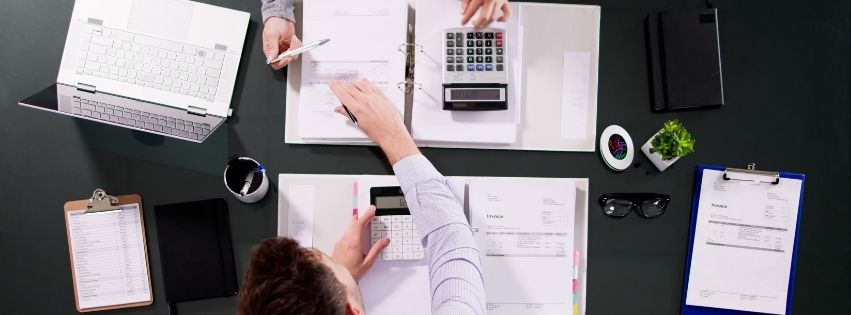Co-authored by Greg Pan, Partner at Nolan Heimann LLC
What licensees can do to get ahead of audits
Licensee audits have long been a staple for major licensors, yet there has been an uptick in audit activity in the past six to seven years. And in the past couple of years, smaller licensors have adopted the practice of regular licensee audits. As auditors have moved on to different organizations in the industry, they have implemented solid auditing programs to find lost revenue and ensure compliance with licensing agreements.
A typical term between audits is three to five years, and an average audit can take six to nine months between scheduling and negotiations, while in extreme cases, they can drag on for two years. This can make the stress and resource drain of audits seem almost constant. In this article, FADEL and IP licensing attorney Greg Pan, Partner at Nolan Heimann LLP, share strategies for licensees to protect themselves from common pitfalls, minimize operational disruption during audits, and move beyond the “drop everything” mentality to a more proactive posture.
What triggers a licensing audit?
For most licensors, audits are routine, however there are certain circumstances that may prompt an audit. Some licensors may coordinate audits with renewals, as the audit may expose grounds for more targeted negotiations. Late payments, corrected royalty reports, missing minimum guarantees, and an imbalance between product approvals and SKU sales will also send up red flags, potentially triggering an audit.
What are the phases of a typical licensing audit?
- The licensee receives notice of an audit from an auditor representing the licensor
- The licensee’s accounting/finance team works together to schedule the audit
- The licensee and auditor agree on the audit period and documentation types
- The licensee responds to information requests
- The auditor compiles a report of findings
- The licensor reviews the audit report
- The report is sent to the licensee
- Back-and-forth communication between the licensee and the auditor to defend and adjust claims
- The auditor arrives at main negotiation points based on evidence provided by the licensee
- The licensor steps in and pitches settlement offers
What licensors look at in the audit process
- Product approvals
- Royalty reports
- Sales data
- Factory invoices
Licensors are looking for numbers in all of these categories to true up. If a royalty report shows a licensee sold 100 units of a particular SKU, they want to see that both the product and the factories were approved and that 100 units were manufactured, paid for, and sold. In addition, licensors want to verify that products were sold in territories and channels where the licensee has been granted distribution rights.


8 ways to stay ahead of licensing audits
- Know your contract terms inside and out
The contract serves as a blueprint for defending an audit, and the onus is on the licensee to make sure terms are being complied with. When sales teams are unfamiliar with contract terms, they may inadvertently sell into unlicensed territories or channels. Ideally, arm them with a snapshot of what is available. It is also important to understand where the buyer intends to resell the product and verify those channels or territories are covered in the licensing agreement. You will also want to keep track of contract amendments, renewals, and extensions that may alter the terms of the original contract.
- Stay on top of product approvals
In recent years, there have been multiple mergers and acquisitions among licensors, in particular major media companies. This has caused major disruption in compliance processes, especially product approvals. In some cases, this has left licensees at a loss as to how they are supposed to move product approvals along. Still, licensees are responsible for getting products approved, and this is low-hanging fruit for an audit. Get products submitted for approval as soon as you know you have a buyer and keep fastidious records of all product approvals, even and especially if the approvals are in emails. This will facilitate a quicker audit response.
- Get a jump on factory approvals
Many licensing agreements require factory approvals and these have become fodder for claims in recent years. Licensees are pulled between two parties: the buyer, who may need an item by a certain date for their planogram, and the licensor, who requires factory approval before production can begin. Satisfying the buyer to make the sale vs playing by the licensor’s rules can be a dilemma that results in a lot of claims. Anything coming out of a factory that is not approved can be deemed unlicensed and incur severe penalties, and licensors pay close attention to factory approval dates vs factory invoices. Similar to product approvals, getting factory approvals as early as possible is advisable. Submitting multiple factories for approval can help ensure that you have a manufacturing outlet—but beware. Too many factory approval submissions can result in licensor scrutiny and more claims to defend in your next audit.
- Keep tabs on performance
Licensors tend to go through waves where they onboard licensees to capture as many categories, retailers, and versions of their characters or brand as possible to guarantee revenue. Over time, there is a bounce-back effect, where the licensees start bumping up against each other in the market, which cannibalizes sales. Once this starts to happen, audits can serve as a way to thin out licensees based on performance. Having insight into performance can not only help licensees avoid missing minimum guarantee thresholds, it can also help pinpoint where extra marketing effort is required to stay ahead of the competition.
- Don’t overshare
Licensors make specific requests for information in their audits, and it is important to stick to those when responding to a claim. Oversharing information that has nothing to do with the licensed product can create other claims, extending the duration and expense of your audit. For example, sharing an invoice with items that don’t pertain to the license agreement can raise questions on the licensor side, forcing the licensee to then prove that an unmarked item is not a licensed item. Similarly, sharing factories that weren’t used for the licensor’s products can also raise questions.
- Look at an audit as a way to improve your processes
It may be hard to imagine the bright side of an audit, but for companies trying to grow their licensing business, audits are a great way to evaluate internal processes. Deeper insight into whether product and factory approvals are being handled properly or how you are performing against contract terms uncovers vulnerabilities. It can identify which parts of your organization may be skipping steps in process, such as prioritizing a customer order before awaiting full product approval. These can be used as an opportunity to tighten up process gaps and better prepare for future audits.
- Leave it to the pros
Hiring outside counsel with experience in IP licensing can pay off in the long run for many reasons. It allows you to focus on keeping your business running and sales up; resources can stay focused on strategic initiatives; professionals can keep you out of hot water with expert knowledge of how to navigate a claim; you will likely end up with a more favorable settlement negotiation; and you have the peace of mind that a seasoned professional is advocating on your behalf. Licensing experts can quickly identify weaker claims and get them dismissed as well as argue against penalties that have accumulated over multiple years.
Involving a professional as early in the audit process as possible can accelerate the audit and keep costs in check. Plus, having a third party negotiating contracts can keep emotion out of the licensee/licensor relationship, preserving the business benefits on both sides. The best practice? Bring in a professional prior to even signing a licensing agreement to ensure the terms are compatible with your processes, preventing breaches later on. If it’s already too late for that, consider hiring help when you are negotiating a renewal. This is an opportune time to fix and correct the parts of the license agreements that are not working for you.
- Explore licensing management software
Licensing management software provides the tools you need to keep your licensing affairs in order and better respond to an audit. FADEL’s IPM Suite for enterprise licensees and LicenSee for small-to-midmarket licensees helps you manage the entire licensing lifecycle and respond to audits. FADEL also offers a DAM for Licensees to serve as a centralized hub for all product approval documentation.
With visibility into deal terms, contract amendment history, and sales violations, as well as audit reports to support data collection and evidence gathering, you can rest assured you have the controls in place to defend an audit when it comes your way.
Simplify Licensing Agreements and Maximize Revenue With FADEL
FADEL plays a critical behind-the-scenes role in helping major brands manage licensing agreements with greater efficiency, accuracy, and profitability.
With over 20 years of expertise, FADEL specializes in automating the complex processes of rights management, royalty tracking, and brand compliance.
From verifying that licensed content is used only within approved territories to calculating royalties down to the last cent, FADEL’s cloud-based solutions provide the infrastructure that keeps global licensing operations running smoothly.
Our solutions include:
- Brand Vision: A brand protection solution that helps ensure compliance with licensing agreements by providing clear visibility into rights, talent, and usage terms. It safeguards brand integrity while streamlining marketing and product development workflows.
- IPM Suite (Intellectual Property Management): An end-to-end IP management software for managing rights, royalties, and licensing agreements across complex ecosystems. It enables brands, licensors, and licensees to automate workflows, ensure compliance, and maximize the value of their intellectual property.
- LicenSee: A royalty management software designed to help licensees manage licensed products with improved accuracy, transparency, and compliance. It streamlines royalty reporting, monitors usage rights, and ensures alignment with agreement terms.
- PictureDesk: A media asset management software that oversees image licensing, rights, and usage across the organization to ensure consistent and compliant visual asset deployment.
- AI-Powered Business Insights & Content Tracking: Streamline licensing, royalties, and content compliance with AI and automation.
Trusted across industries, FADEL enables brands to minimize risk, ensure legal compliance, and maximize the value of their intellectual property.
About the Co-Author


Greg Pan, Partner at Nolan Heimann LLC
Greg’s primary expertise is in partnering with businesses that rely heavily on licensing entertainment and media brands to create consumer products and services. Drawing upon his extensive experience with globally recognized brands, he possesses a deep understanding of the nuances of contracts governing the use of trademarks and copyrights.

